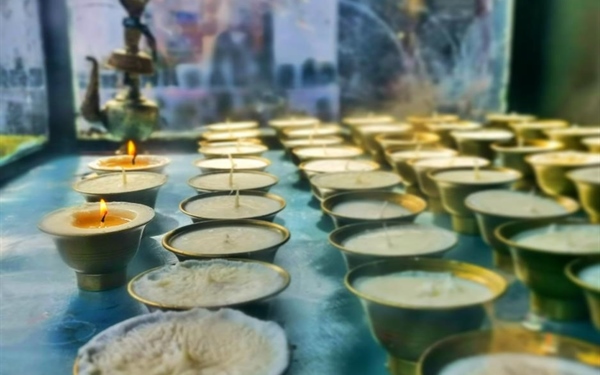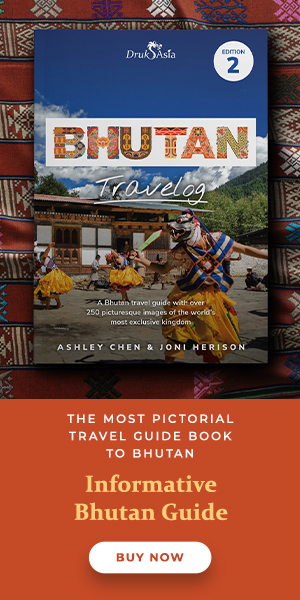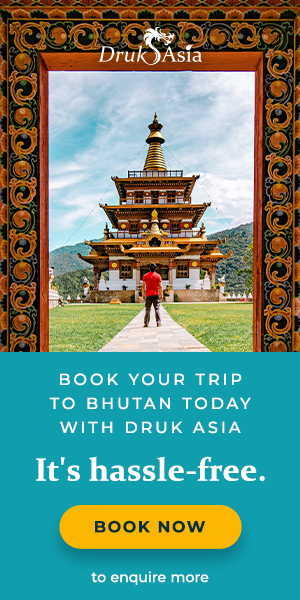Elaborate death rituals and funerals by Bhutan's indigeneous community
Unlike majority of the Buddhist population in Bhutan where dead bodies are cremated, for the Lhop community, bodies are buried nearby their homes.

Aside from the highlanders and semi-nomadic, there are several other groups of indigenous tribes in various corners of Bhutan. Amongst these indigenous tribes, it is believed that the 'Lhops' or 'Doyas' are one of the oldest aboriginal inhabitants in Bhutan. These early settlers live in Dorakha, Samtse district in Jigme, Singye, Wangchuck Village in the southwest of Bhutan.
The Lhop have cultures and traditions that are distinctive from the Bhutanese mainstream society. Their white traditional attire and native Lhokpu language are unique aspects of the tribe. However, the most unique tradition is their elaborate death ritual and funeral ceremonies.
Funeral Rites
When a person dies, the body will be kept for three days. There are different beliefs as to where to keep the corpse as it depends upon the gender of the deceased. There are different beliefs as to where to keep the corpse as it depends upon the gender of the deceased.
The dead body of a woman is kept in the inner room of the house while a man’s body is kept in the entrance room of the house. The funeral rites of a woman must be carried out at her natal home while funeral rites of a man could be performed at either his natal home or his wife's home.
During these three days, the family continues to prepare and cook food for the deceased. The food for a dead man is prepared outside the house, while the food for a dead woman is prepared inside the house. Three meals are offered as per normal during these three days. During the food offering, all close family members gather together, pleading with sympathizing wails and chants for the deceased to accept the food and not hold grudges against anyone.
During these three days of mourning, relatives and neighbours visit the bereaved family to console them by bringing fermented millets and grains.
After three days, the body is prepared for the burial ceremony.
Burial ritual for Lhop communities
On the burial day, preparation starts early in the morning to prepare the rombu, a burial monument at the selected site. A bamboo mat is spread on with a large white cloth to wrap the body. The body is folded into a foetal position and wrapped with a white cloth using three strong bamboo canes. The body will be put to rest at the burial site that is at least 30 meters away from the main house.
Prior to the burial day, some people would have gathered woods and planks from the forest and collect stones from fields surrounding the house to make the coffin. A hut will also be constructed to house the rombu.
At the burial site, a horizontal stone foundation is laid to raise the area about six inches from the normal ground level. On the stone foundation, the planks are arranged to form a cubical box and stones are piled up to cover the planks to form a coffin.
The body will be lifted above the box and swung up and down three times. It will then be lowered for the final rest with the head to the north and face looking upward. Important valuables belonging to the deceased are kept beside the body. Thereafter, the box is covered by planks and sealed with clay to ensure that it is airtight and prevent the smell from decay.
Finally, the burial attendees will pile up stones over and around the box forming a pyramidical stone mound. A triangular-shaped stone is placed on top of the mound. The stone mound is known as 'chen' in the Lhokpu language.
Post-burial ritual
After the burial ritual, food and drinks continue to be offered for fifteen days. On the 15th day after the death of a person, the last final ritual feast is conducted. If the deceased is a female, a cow will be slaughtered and for males, an ox is slaughtered.
The Lhop believes in the duality of existence. Thus, on that day, it is believed that the dead person's soul is leaving the body to join the world of death, ‘Simpu’.
The Lhop community does not have any special way of observing death anniversaries. Although, traditionally, food and drinks will be offered to the deceased for 3 years during the anniversary.
The death rituals and burial ceremonies of the Lhop provide insight into practices and a glimpse into the past traditions in Bhutan. These ancient values and traditions were probably widespread in Bhutan during the earlier times. That is why it has drawn the attention of people from within and outside the country.




